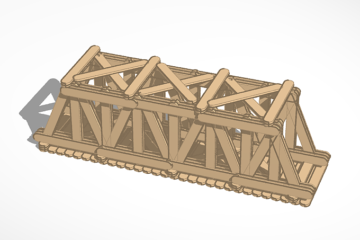Published by Ruben Alvin on 9/17/24
You’ve probably heard of supercomputers and how powerful they are, but what if I told you there’s a new kind of computer being developed that could be even more powerful? It’s called a quantum computer, and it has the potential to solve really tough problems that even today’s fastest computers can’t handle. But what makes quantum computers so special, and how do they work? Let’s break it down.
What is Quantum Computing?
To understand quantum computers, it helps to know how regular computers work. In your phone, laptop, or gaming console, everything is made up of bits—these are like tiny switches that can either be on or off (which we represent as 1 or 0). Every piece of information your computer processes is a combination of these 1s and 0s.
Quantum computers are different because they use quantum bits, or qubits. The cool thing about qubits is that, instead of being just 1 or 0, they can be both at the same time, thanks to something called superposition. Imagine flipping a coin: in a regular computer, the coin can only land as heads or tails. In a quantum computer, it’s like the coin is spinning in the air and is both heads and tails at the same time!
Another important idea in quantum computing is entanglement. This means that qubits can be connected, even if they are far apart, and changing one qubit will instantly change the other. This allows quantum computers to process information much faster and more efficiently than regular computers.
Why Are Quantum Computers a Big Deal?
Quantum computers are super powerful because they can process many things at once. This could help solve problems that would take regular computers years to figure out. Here are some examples:
- Breaking Codes: Today’s computers use complex math to create secure codes that protect your data, like passwords and bank info. Quantum computers could break these codes much faster, which means security systems would need to become even stronger.
- Medical Research: Quantum computers could help scientists discover new medicines by simulating how molecules interact. This would speed up drug research and help us find treatments for diseases more quickly.
- Artificial Intelligence (AI): AI is already helping with things like self-driving cars and facial recognition. Quantum computers could train AI systems faster and make them smarter, helping us solve problems like climate change and energy use.
- Optimizing Logistics: Imagine you’re running a shipping company and need to find the best routes for your trucks to save time and fuel. Quantum computers could quickly figure out the most efficient paths, saving tons of money and reducing pollution.
Why Don’t We Have Quantum Computers Everywhere?
Quantum computers sound awesome, right? So why don’t we have them yet? Well, building them is really, really hard. Qubits are super delicate, and they need to be kept extremely cold—like colder than outer space cold! They also need to be protected from noise and interference, which makes them hard to control.
Scientists are still figuring out how to make quantum computers stable and powerful enough to be useful for real-world problems. While companies like Google and IBM have made some big advances, it could take years before we see quantum computers used in everyday life.
Why Should You Care About Quantum Computing?
Quantum computing is one of the most exciting fields in science and technology today. If you’re interested in physics, computer science, or math, learning about quantum computing could open the door to a career in this growing field. It’s also important for other areas like cybersecurity, healthcare, and artificial intelligence, which are going to rely on the power of quantum computers in the future.
Plus, quantum computing is a perfect example of how science and technology are always evolving. The computers we use today were unimaginable 100 years ago. Who knows what we’ll be able to do with quantum computers 100 years from now?
Conclusion
Quantum computers are a new type of super-powerful machine that could change the way we solve problems in science, medicine, and technology. By using qubits, which can be in multiple states at once, quantum computers have the potential to perform calculations much faster than regular computers. While we’re still in the early stages of building them, the future of quantum computing is bright, and it’s something anyone interested in science and technology should keep an eye on.




